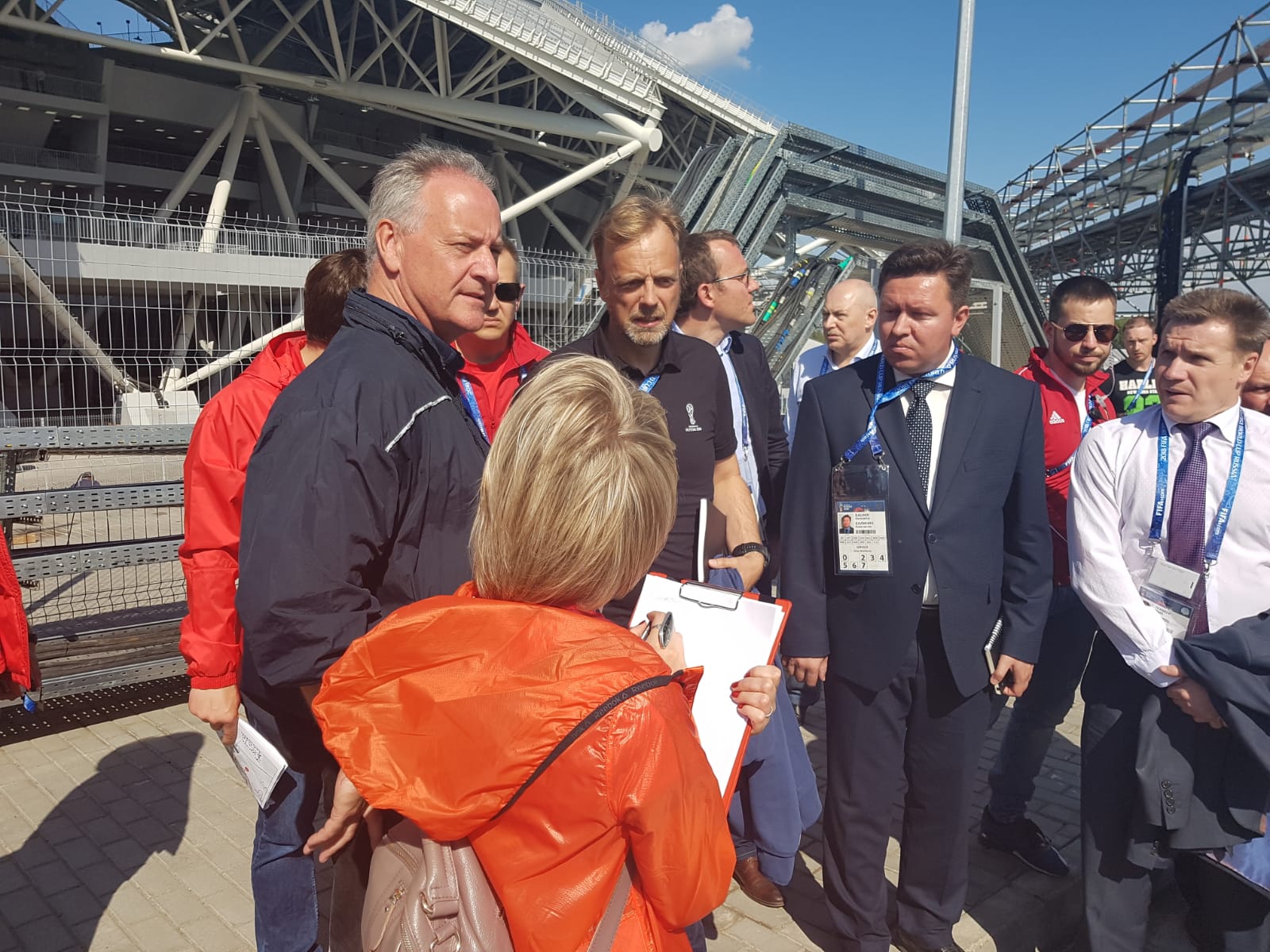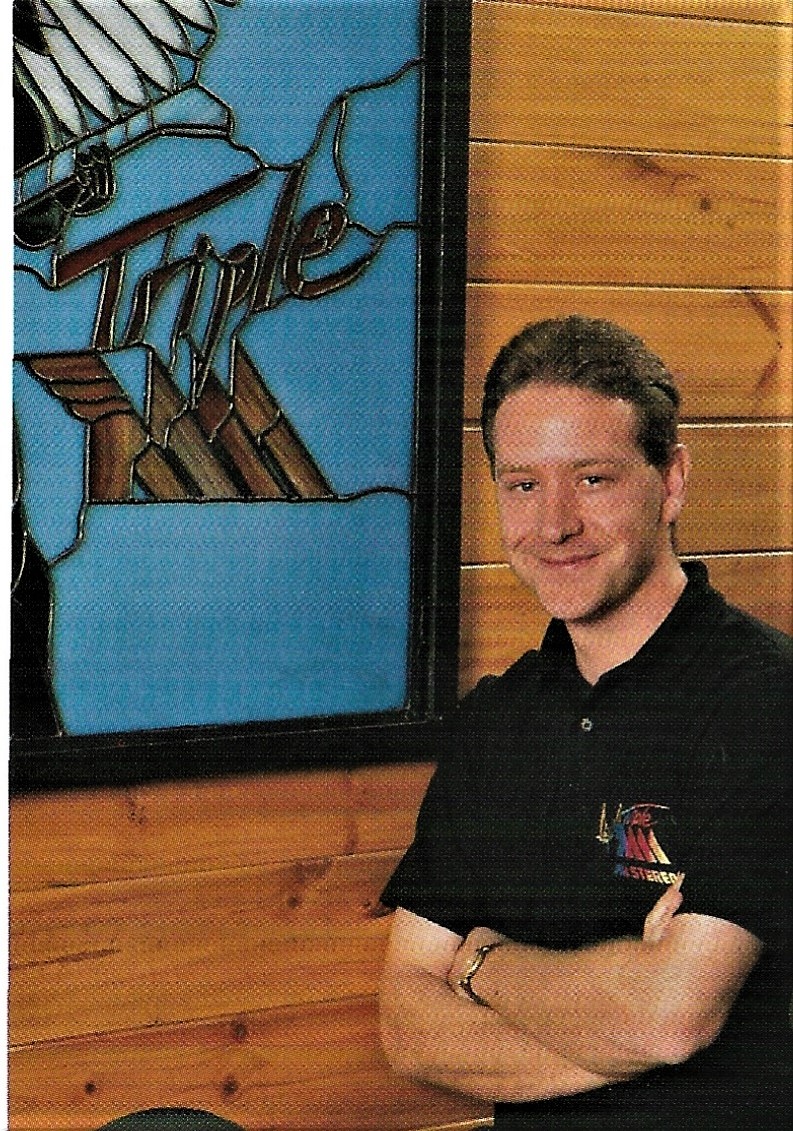
An interview with Ian «McRobbo» Robertson, broadcast operations and venue manager for FIFA and UEFA (Australia).
– When and where were you born, who were your parents?
I was born in Glasgow in Scotland, in 1960, my parents were William and Margaret Robertson, we were a working-class family, my father was a truck driver and my mother a cleaner.
– Do you have siblings?
I have a twin brother who is also an electronic engineer and two older brothers who live in London.
– What were you like in school? What subjects did you like?
Growing up in Glasgow I don’t remember much of primary school but the secondary school was very rough but we thought all schools were this tough so just got on with it, my favourite subjects were art and geography, I’m interested in art and graphic design, which has continued into my adult life, I was a pretty good student, along with my twin brother we did alright and survived it.
– Did your older brothers help you with school?
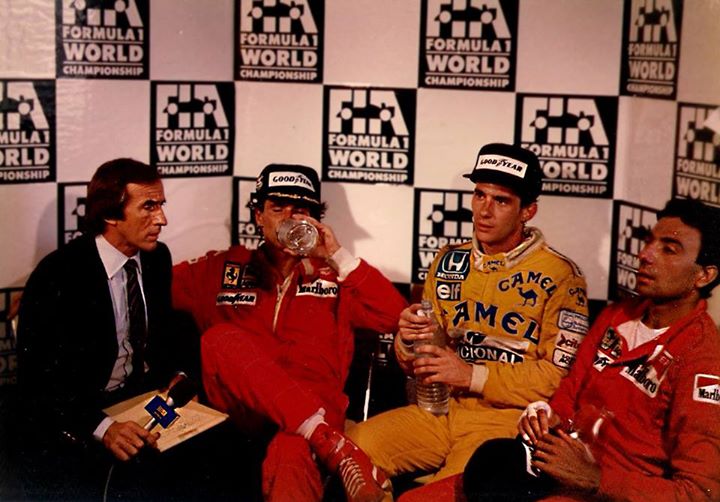
No, the other two were older and more distant from us, by the time we went to secondary school they had leftso it was just him and I, we ended up studying the same things which led to us both having careers based on electronics.
– When was your interest in technology born?
I was always one of those kids that was forever taking things apart and trying to rebuild them, I remember one time I blew up my mother’s portable little black n white TV during one of my investigative experiments, it was a while before I could afford to replace it.
During my teenage years we decided to move from Glasgow to the Scottish countryside, my twin brother and I had already left school, but we did not go to university, we ended up attending what we call in Scotland ‘technical college’ for electronics diplomas in broadcast and television. Most engineers and technicians from my area studied at technical college, you end up with a certificate from the City and Guilds of London, ours was for electronic television and broadcast engineering, the cost of these course was covered by the government education system, so thankfully we did not pay for it, this was the real start of being paid to mess with electronics I ended up working in the electronics manufacturing industry for the first part of my career.
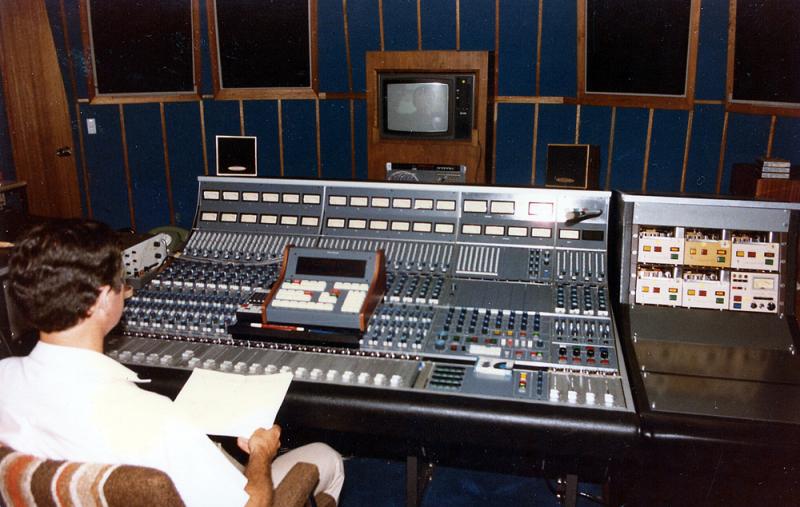
– What was your first job?
My first job is quite interesting, I got an apprenticeship with a very famous company called Neve Electronics, in the 70s, it was one of the major manufacturers of audio consoles at the time and I was employed as a technician testing the Neve consoles before they left the factory, I worked here for about 5 years whilst completing my technical college courses, this is where I got my backbone in electronics to understand how gear worked, read circuit diagrams, fault find, not blow up TV’s etc, it was a fantastic company to work for – gave me my first opportunity to visit some of the top recording studios in London, it was at the forefront of audio console design long before SSL, Harrison, Sony, Calrec etc were heard of.
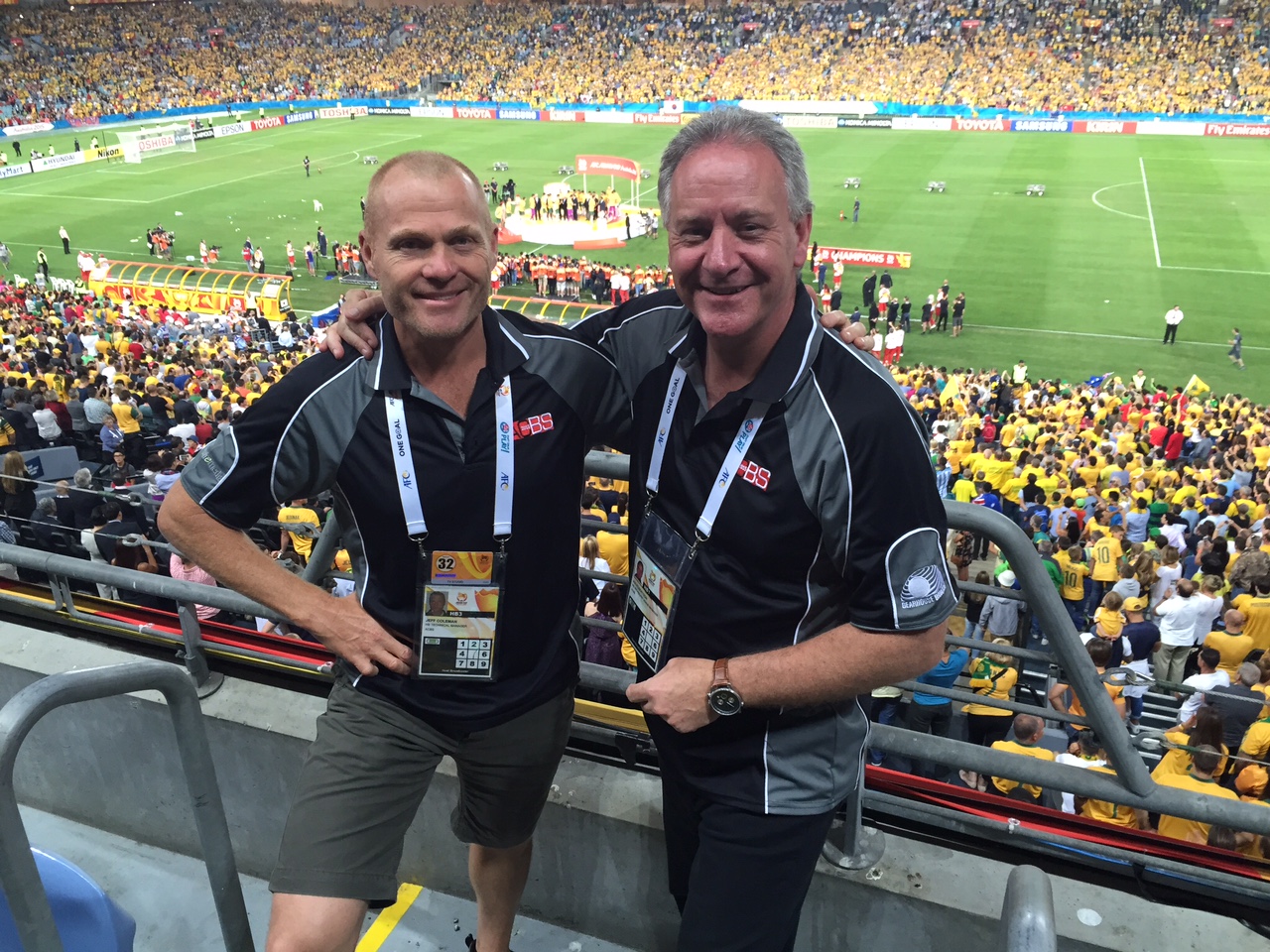
– How long did you work there?
Until I was 21, so probably around five years, then I decided I needed an adventure, so I moved to Australia.
– Why did you choose Australia?
When I finished being a technician and got my certificate, I started reflecting on life in Scotland and being young and adventurous I wanted to take on the world. I had the choice of going to South Africa, America, England or Australia, I had an uncle who lived in Australia and as a young boy I had learned all about it so I decided to move there, I could not get any further away from Scotland if I tried and to add to the adventure, I got married the same year before migrating.
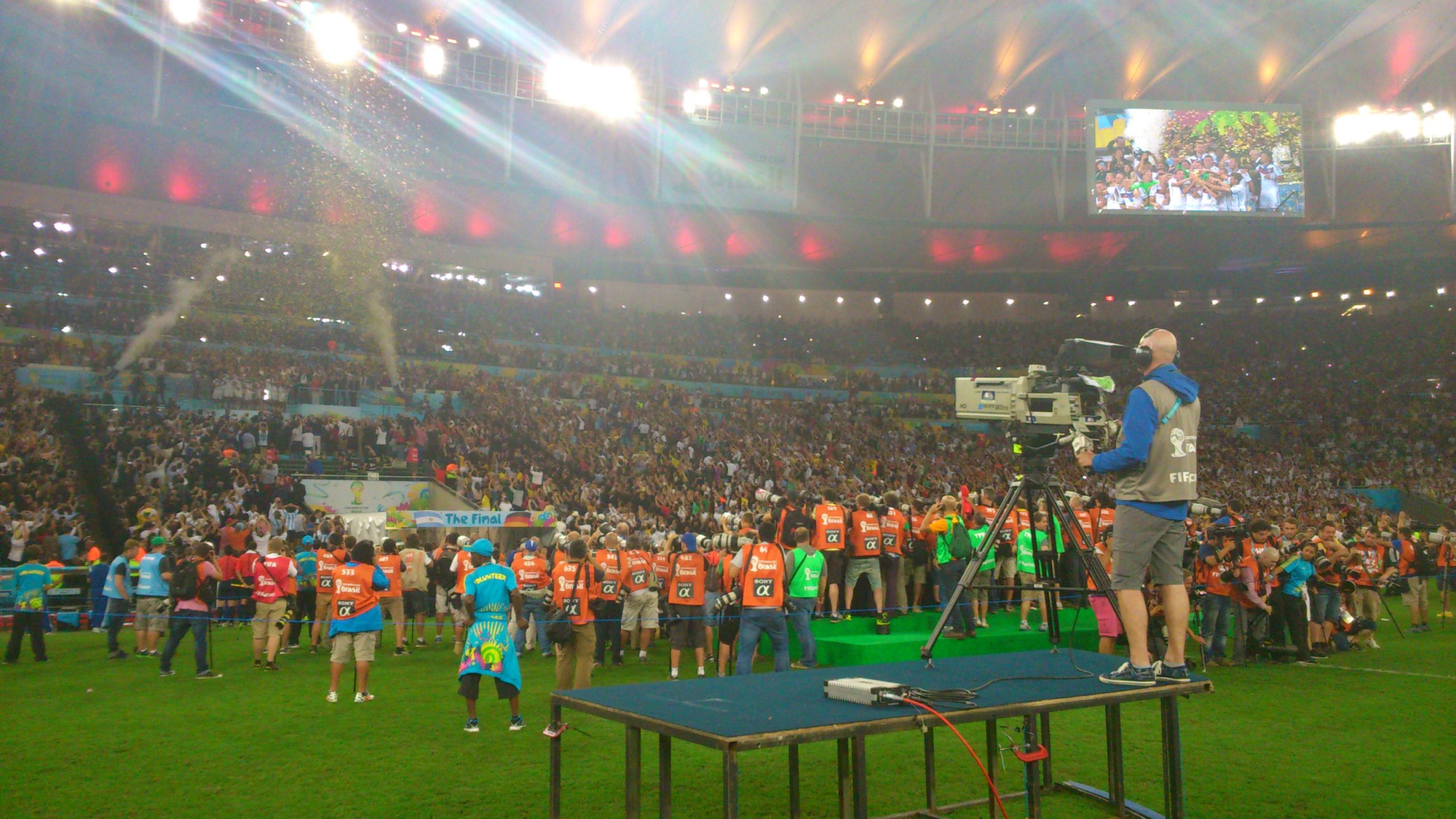
– Was your wife Australian?
No, she is Scottish, we were both 21 and got married on her birthday, then to the horror of our families we emigrated to Australia later that year.
– What did she do at the time?
She was a receptionist at her family’s hotel, I worked there part-time as a porter, so that is where we met.
– How did you build your new life?
Because I worked for Neve, the first thing I did was go to all the places in Sydney that had their consoles installed to try and get a job as a technician, I ended up getting a job with ABC Television the government broadcaster, they invited me in for a job to look after their newly acquired NECAM suite with the first total recall moving fader system, an innovation in those days and for me a reuniting with a console thatmy signature was all over as I had compliance tested this actual desk in Scotland a few years before.

– What was your position at ABC Television?
I was an audio technician, my video background was not as important in those days I knew a lot about audio because of my work at Neve, most technicians were obsessed with the video side, so the management loved having someone happily looking after all the audio maintenance.
– How did your career develop after this?
I did a few years at ABC TV and learned a lot, the facility was massive so it introduced me to loads of new equipment I had never seen before, I became pretty good at maintaining multitrack tape recorders Studer, Sony, Steenbeck 16 mm film editors etc, but as audio was my passion I eventually ended up at the radio facilities of the national broadcaster maintaining the various on air studios and equipment, a great experience and education for my future, I worked there for a few years, until I eventually got of a technician job at one of the major commercial television broadcasters Channel 9.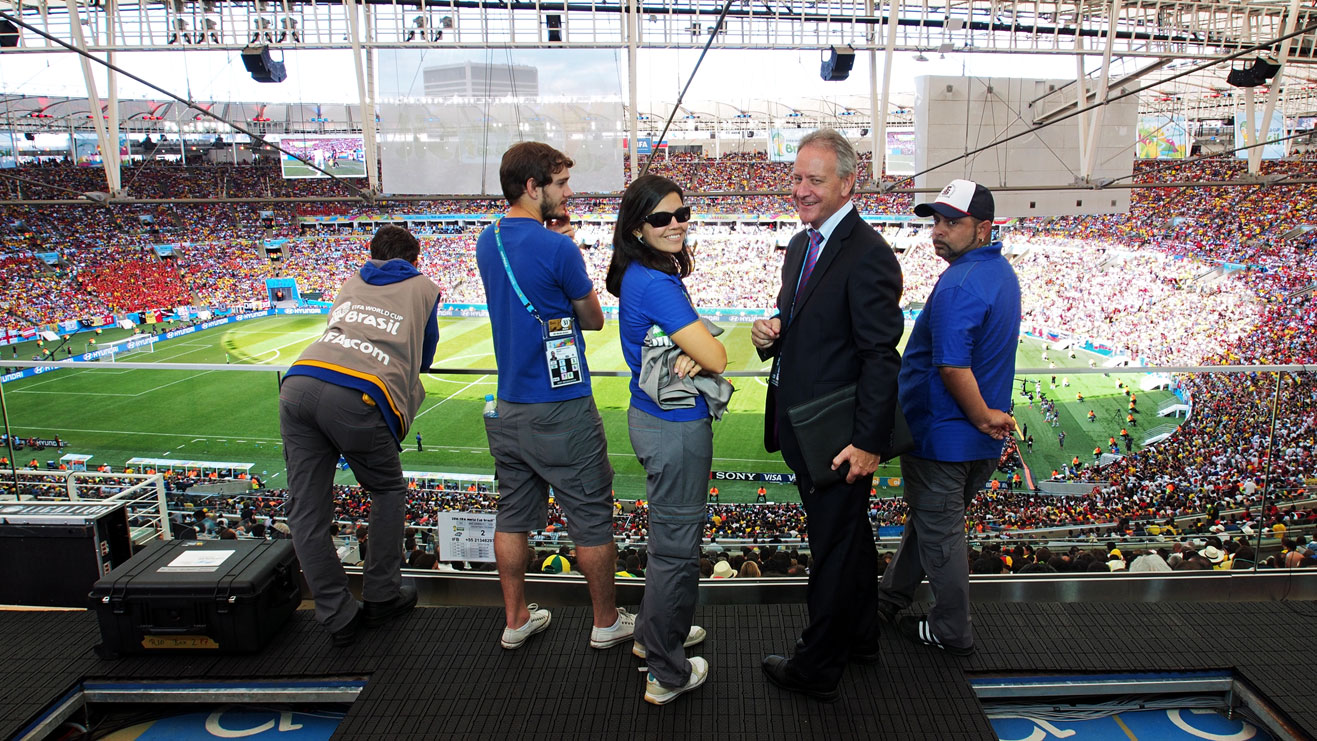
– Did you start working for Channel 9 immediately after ABC?
No first, I took a break and went for a 3-month tour around Australia with my wife, like tourists we went all the way up the coast of Australia to experience this amazing country and on return to Sydney I started working at Channel 9, it was magic, a whole different way of looking at life compared to the government broadcaster.
I worked with them as an audio technician, again looking after all manners of audio equipment and of course a few Neve consoles, it was at this time I started building OB vans for the Adelaide Grand Prix, I had the opportunity to work on 3 grand prix which was fantastic, found myself looking after the winner’s interview studios in the Pitts and as an avid Formula One fan it was great to be in the same studio as my racing hero Ayrton Senna.
– Where did you go after Channel 9?
Always on the lookout for the next big challenge after a few years I couldn’t see any movement at Channel 9 and I heard my favourite FM radio station 2MMM was looking for a technician so I applied and got the job, a few years in and the existing chief engineer decided to leave after the station was bought by another company, the management offered me the position if I added the required certificates to my resume, a no brainer as there were only two of us running the station so at 27 years old I eventually became their chief engineer.
This brought a whole new electronics field to my resume having to look after the FM transmitters, understanding the antenna systems etc, to this day I still think its black magic, in my time there along with my colleague we totally rebuilt the multitrack and on air studios. It was an amazing radio station, always number one in the ratings and had all the stereotypical things one would expect in a rock n roll scenario, concerts, major stars visiting, one of the major highlights of my time there was moving to London to engineer a live broadcast of the INXS concert from Wembley Arena.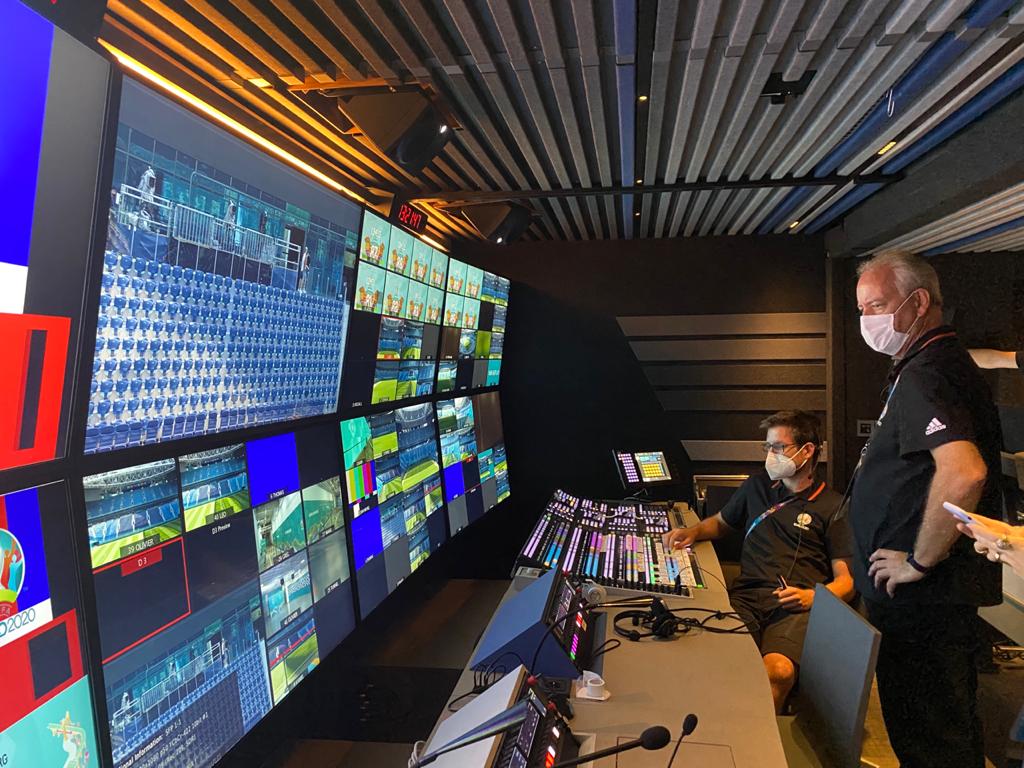
– Where did you go after Triple M?
After my eight years of working there, I decided I needed another change and ended up working with an outside broadcast company called Global Television, I spent a few years there, building OB Vans, TV studios and working in outside broadcasts, doing football tournaments, etc.
– What happened next in your career?
Around the mid 90’s I decided I wanted to move away from the engineering side and ended up working on a TV show called Who Dares Wins, it was one of the first reality shows on tv, featuring members of the general public long before it became the norm, we would dare people to do crazy stunts and my job as the producer was to devise and plan the ‘dares’ we would ask them to do.
We travelled all over Australia, filming these stunts getting people to ride motorbikes through flames, bungee jump from hot air balloons etc, my first ‘dare’ to go to air was when an everyday lady who worked as a dental receptionist by day, walked between two hot air balloons whilst they were 500m in the air and the highlight of my time on this show was when I convinced a guy to ride a motorbike out the back of an airplane.
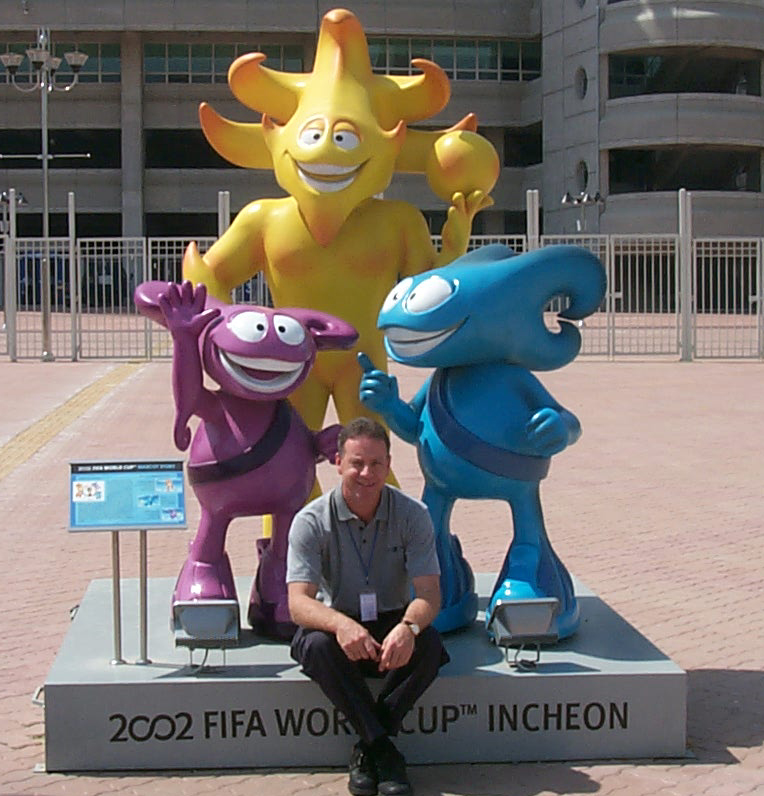
– Did you continue working in television after this?
After WDW ran its course, I ended up becoming the production manager on a another reality tv show based on the life of a young cattle rancher who owned a million acres of land in the remote central part of outback Australia were he raised brahma bulls to sell mostly to the Japanese market, the main character lived an adventurous life and he would take me in his little glass fronted helicopter to chase wild kangaroos, brumbies and camels from the air, another bonus working on this show, excitement plus lifestyle, like all good things it came to an end but the production company were looking for a production manager to tour with the PGA Golf Tour of Australia for two years, again I landed on my feet as another fantastic job and experience, touring from one side of the country to the other whilst watching these professional golfers show their mastery, as a very amateur golfer I also had the opportunity to play on the best courses in the land and to this day I am still useless at it.
Then came the next big thing: the Sydney Olympics.
– What did you do for the Sydney Olympics?
I was hired by the Organizing Committee to be in charge of planning, vision, and sound for all the venues at that time a relatively new concept dubbed as ‘Sports Presentation’, what we take for granted now was completely new in those days. I was hired not for television but to utilize my technical background to do planning and installations and hire the 3rd party AV companies to facilitate the set ups, again lucky enough to travel throughout Sydney and Australia to oversee these installations.
During the actual Games, I ended up being the Sports Presentation director for the football finals, I was set up in the booth with the announcer, playing the national anthems, etc. this was the other side of my work at those Olympic Games and the reason I can relate so well to the guys doing the same job that I deal with at my present world cup jobs.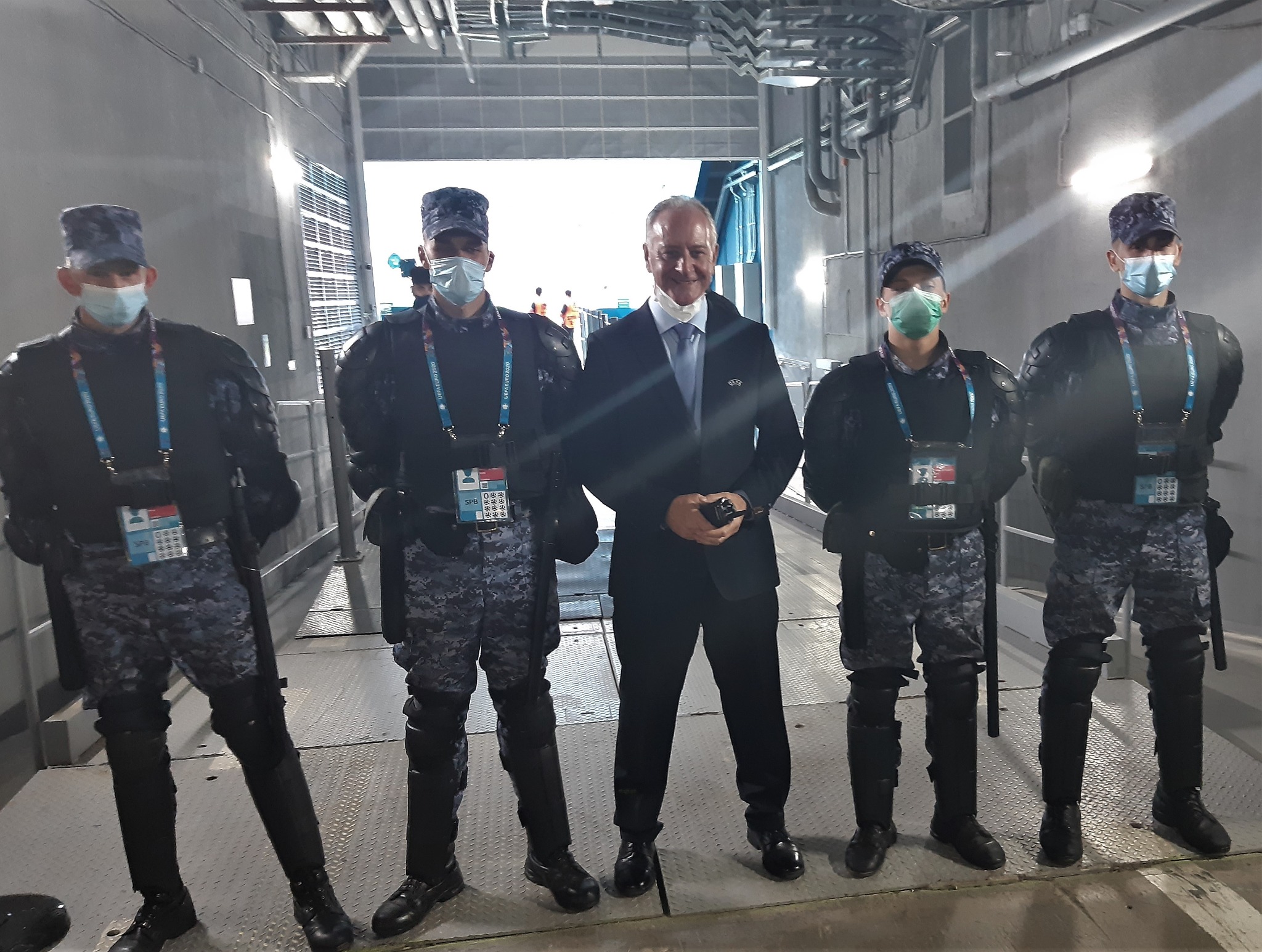
– How many people were on your staff here?
There were about 50 people at various times, as the cities used had different technical requirements, the Sydney Olympics had football being hosted in Melbourne, Adelaide, Brisbane and in Sydney the multisport venues were widespread all over the city.
– What did you do after the Olympics?
When the Olympics were over, I got a job offer to go to South Africa and work for the cricket World Cup as a production manager touring with a crew between Zimbabwe and all-over South Africa covering the tournament for the host broadcaster, another fantastic experience as Zimbabwe was like a third world country and had loads of challenges to get the job done, especially dealing with the corrupt government officials and the black market.
I came back to Brisbane, Australia in 2001 and took on the mantle of technical manager for the Goodwill Games organizing committee, these were a multisport event sort of American equivalent of the Commonwealth Games and a smaller version of the Olympic Games, again looking after the sound and vision installations for the many venues.
I then took on a long term job with a company called Great Big Events who’s claim to fame is they introduced the ‘sports presentation’ concept to the world and with them I worked as technical manger on the Rugby World Cup in Australia and the Commonwealth Games in Manchester.
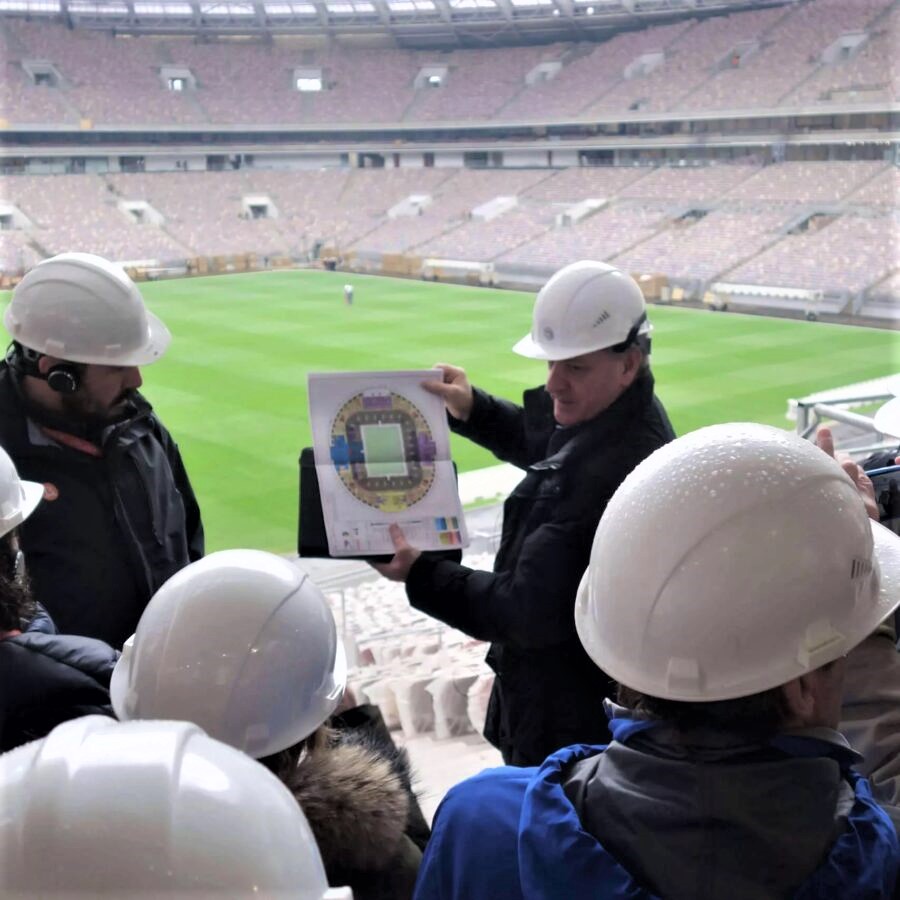
– How did your career develop after this?
During the Sydney Olympics I was approached about future employment working on the next FIFA World Cup with a company called HBS – Host Broadcast Services who had secured the contract with FIFA to provide all broadcast services production and technical for the next six football world cups, they were hiring people from all over the world and had come to the Sydney Olympics to interview people, this eventually led to me getting my first BVM (broadcast venue manager) job, it was in Korea at the 2002 World Cup.
– What exactly did you do at the World Cup?
At the time, I had no idea what a broadcast venue manager did, the job entails managing all facets of the broadcasting facilities for use of the host broadcaster and the international broadcast partners, liaising with representatives for FIFA, the Korean organising committee, stadium management etc to ensure they were ready for operation time.
I was based at two venues in South Korea located at either end of the country one in Incheon and the other in Busan so for a few months I would fly with my technical manager back and forth to look after the planning of the venues, this included ensuring the construction of the various infrastructure, camera platform, interview studios, presentation studios and platforms etc.
At the actual tournament time I looked after Incheon stadium and the day to day running of the broadcast, this was all a new learning curve at the time dealing with so many foreigners in a very different culture.
This was the start of my very long careerwith HBS and FIFA, when I watched the previous world cup hosted in France, I was at a pub with my mates in Australia, growing up as a wee football mad boy in Glasgow never in my wildest dreams did I think I would end up being the broadcast manager for so many world cups, I still find it quite surreal.
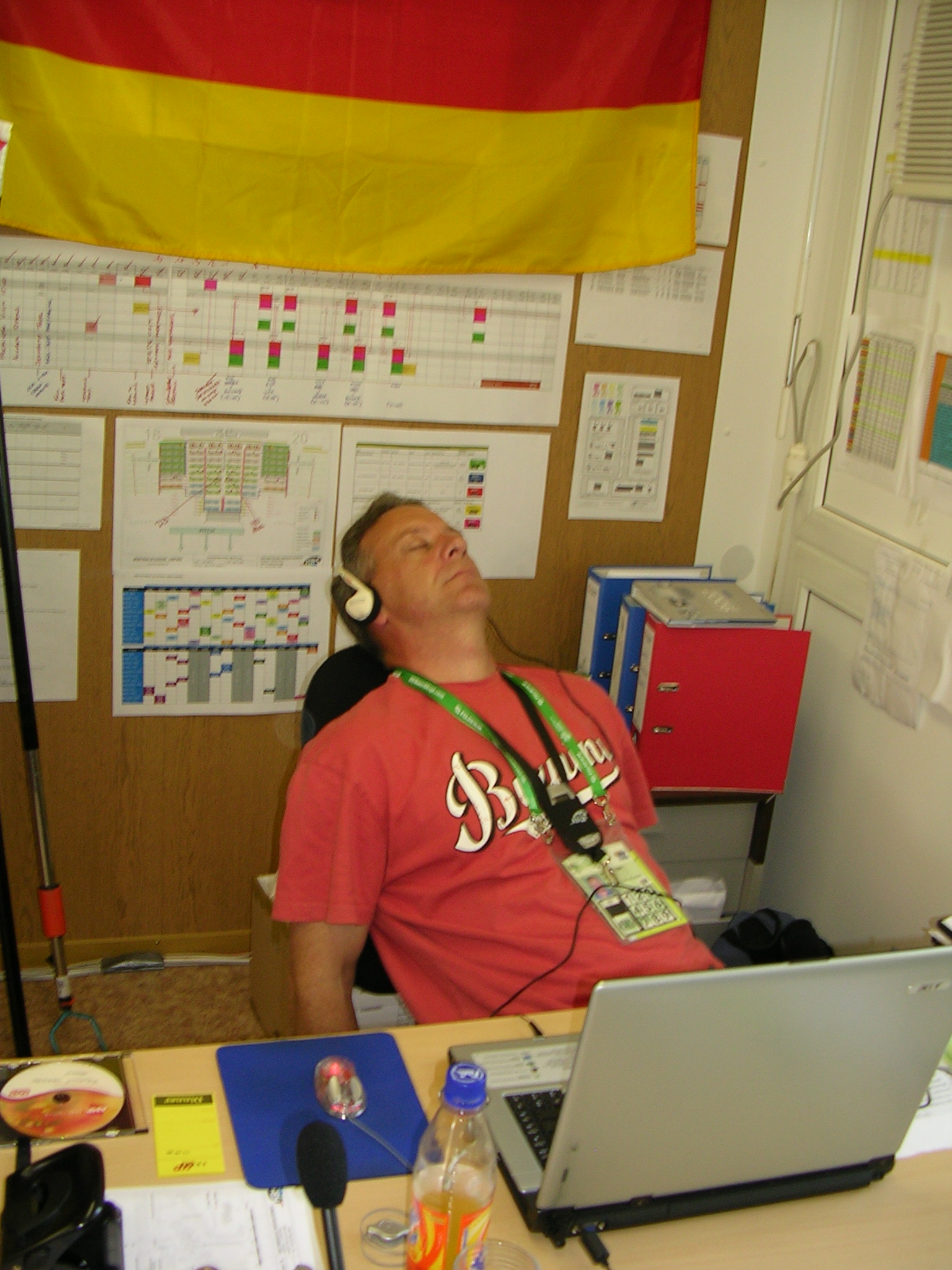
– What came after the World Cup?
After this, I came back to Australia and did a few smallerlocal jobs working on special projects as technical manager on theatre productions and then I did my first job for UEFA at their European Football Championships in Portugal in 2004, again I was a broadcast venue manager looking after the broadcast requirements exact same concept as on the world cup, based at the fantastic Drageo Stadium in Porto another amazing experience and the beginning of a great relationship with UEFA which has continued to this day.
The next few years repeated like the previous with BVM roles at the German World Cup based in Leipzig and travelling in and out of Australia to various parts of the world, it’s been great.
– Have you been doing this sort of work ever since then?
2005 and 2006 were a crazy exhausting couple of years, before the FIFA World Cup in 2006, I was involved in planning for the Commonwealth Games in Melbourne as tech manager once again for Great Big Events repeating my role from the Sydney Olympics, I left that job and went straight to Germany for 3 months with HBS and then on to Doha and spent three months as BVM on the Asian Games in Qatar looking after a multisport venue in the desert. I had completely burnt myself out, I was exhausted, although its fantastic fun it’s still a job with all the usual stresses, very tiring, you’re away from your family, you travel a lot, constantly in and out of airports, so I gave up for four years and had my own private business of laminating and selling posters and art pieces, this business took off and I found myself printing, laminating and mounting posters various galleries, whichkept me extremely busy but I couldn’t wait to get the call to come back for the 2010 World Cup which it eventually did and I ended up going back my favourite industry in South Africa based in Rustenburg and it was wonderful to be back.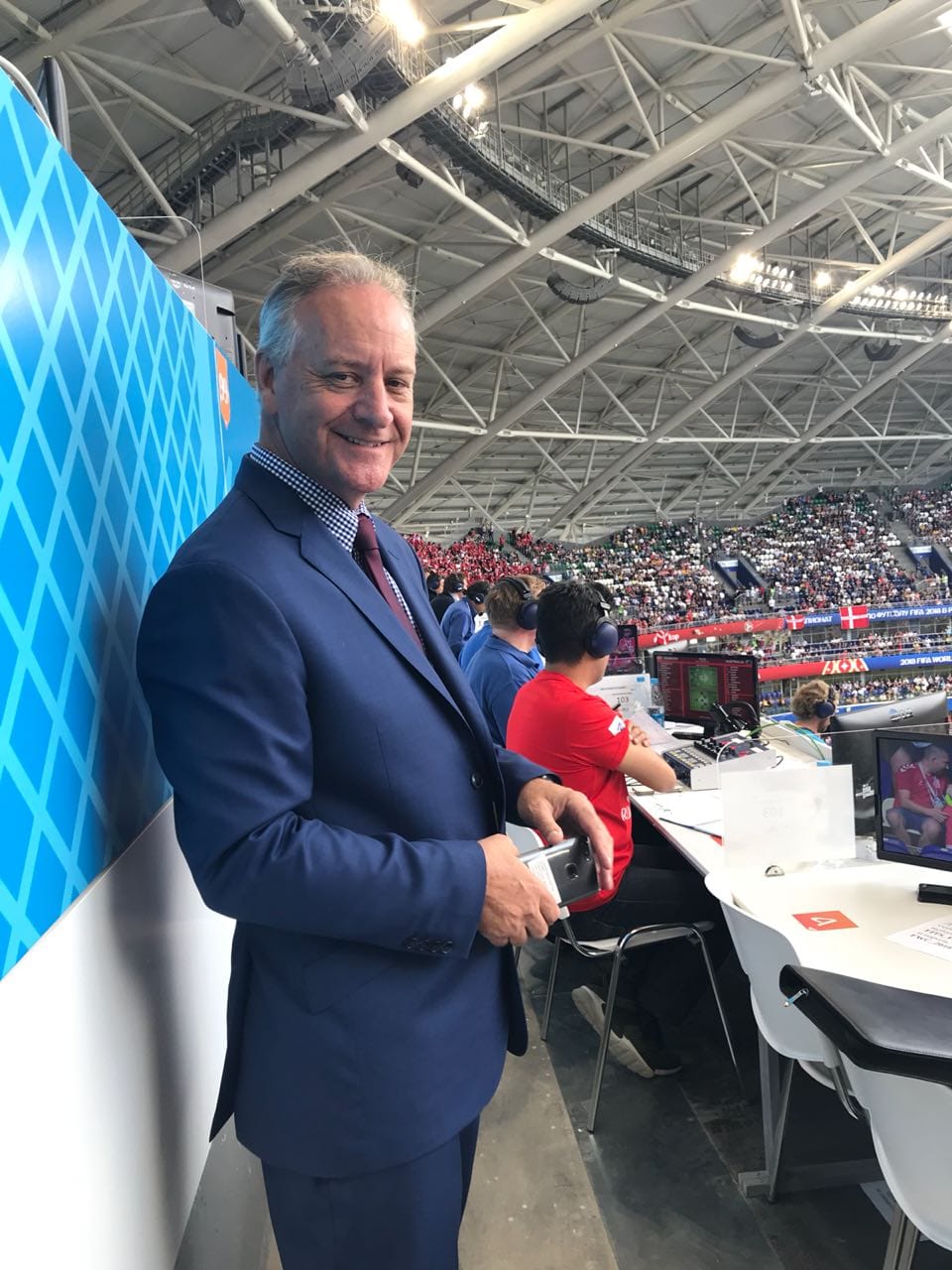
– What did you do after the 2010 World Cup?
Since then, I haven’t stopped, I went to Kazakhstan and did the Asian Winter Games, which was fantastic, I had never experienced such cold temperatures, -20 degrees like sticking your face in a freezer. I worked for UEFA again at the Euros based in Lviv, Ukraine.
This was the start of a few big jobs when I moved to Brazil and lived in Rio for two years to take up a senior BVM role for HBSplanning the broadcast infrastructure for the Confederation and World Cup tournaments, one of the highlights of my career, what a great job I got to travel all over Brazil to the host cities and during the event I was the BVM in charge of the World Cup final, being based at the world famous Maracanã stadium and watch it go from a ‘hole in the ground’ building site to the brilliant stadium with Germany lifting the cup, it was the largest outside broadcast I had worked on with about 32 different broadcast trucks of various sizes in the compound, it doesn’t come much better than that.
I then returned home to work as BVM on the Asian Cup final in Sydney, then back overseas to Singapore for the SEA Games followed by another job with UEFA working on the 2016 Euros in Lyon France, again what an experience not only for the tournament but to experience the lifestyle of these amazing cities.
– Did you work on the 2018 World Cup in Russia?
Yes I lived in Moscow for a year and did the planning for the FIFA Confederation and World Cup, my first time in Russia again I was privileged to travel all over this great country visiting various cities and stadiums, eventually I would be the BVM at Sochi for the CC and Samara for the WC, two completely contrasting cities but both fantastic in their own ways, Fischt Stadium had previously hosted the Winter Olympics so was relatively easy as most people had experienced a major tournament but Samara was a very tough venue with a lot of challenges as it was still being built when I arrived and progress was very slow and the first match wasn’t too far away with a lot of construction and broadcast infrastructure still needing to be done, a solution had to be found so to be diplomatic it was agreed we had to bring in the FIFA executive to lay down the law, but of course it ended up being a perfect stadium and the Russian World Cup one of the best tournaments in all the ones I have done, again not just for the football but the overall experience.
– Have you continued working in this field since then up until now?
Yes, the next international job as planning BVM on a smaller scale was in Abu Dhabi where I did the Asian Cup finals touring around the UAE, now I’ve just returned from the Euros in St Petersburg, it was great to be back in Russia even with all the Covid restrictions this has to be my favourite country to visit and I look forward to returning one day.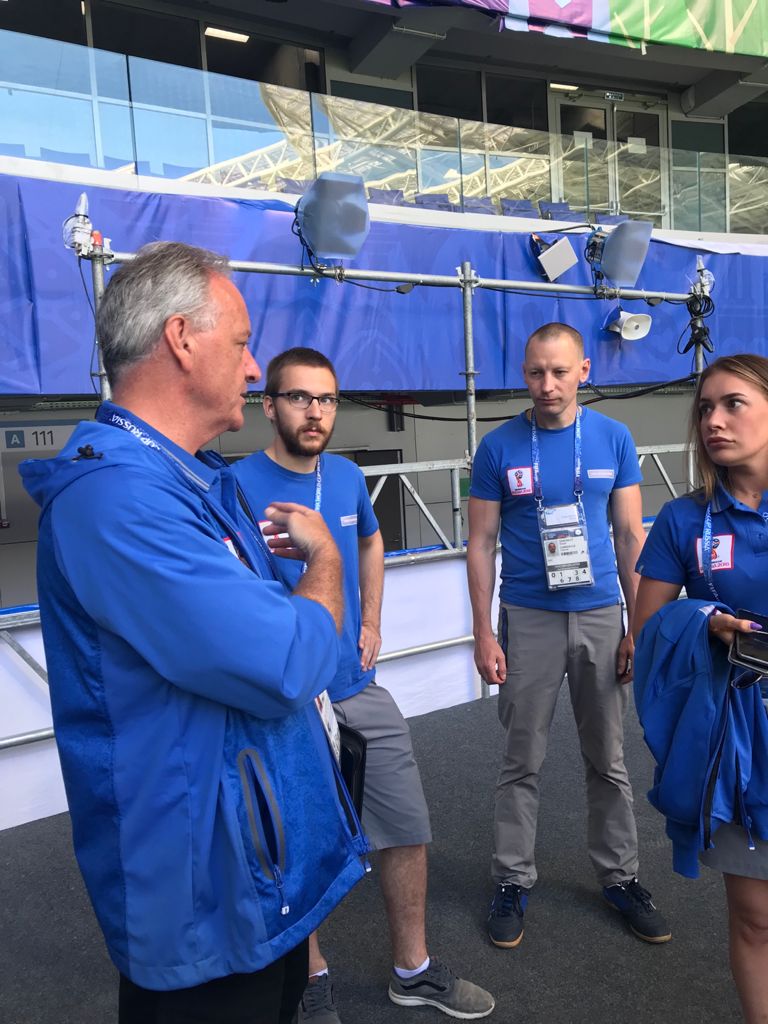
– How do you think remote production can help broadcasters?
Remote production is great, it has been a lifesaver with COVID restrictions and crews not being able to travel, it means that fewer people are required and of course, companies like HBS and UEFA are very conscious to ensure they provide enough remotely accessible content for the foreign broadcasters, they are provided with so much material and information at the IBC, they don’t have to send massive amounts of staff to the venues, in most cases a journalist and a couple of cameramen and the rest of the production is done back at the home studios which ultimately means lower costs, so a big win for the production budget, the quality is also so greatthat the viewer has no idea the show they are watching is being hosted remotely, in the World Cup and recently at the European Championships in St Petersburg, we used remote production a lot more, it’s of course the way forward.
– What are your main achievements in your career?
I would say planning the sound and visuals for the Sydney Olympics because no one had ever done that before, for so many sports requiring individual tailoring, it was amazing to stand back and say, “we did that” also my time in Brazil and planning everything and then being the broadcast venue manager for the World Cup Final was great, again the small boy from Glasgow could never have wished it.
I was also a bit nervous about going to Samara not knowing what it was going to be like, but by the end of it what an amazing experience, working for FIFA and UEFA has always been great, that’s probably why they keep flying me back from Australia – we have such a great relationship.
– Where did your nickname come from?
I have been known as McRobbo for most of my working life, it started way back at Channel 9 when I was doing the Adelaide Grand Prix, I built an OB truck, and funnily enough, the Australian guy who also operated the desk in the truck was also named Ian Robertson so were stuck together side by side for hours, Australians are well known for shortening people’s names and during production our colleagues were constantly calling on the intercom asking for Robboand I would answer and they would say not you the Australian oneand then again Ian would answer and they would say not you the Scottish one, this went on for a week and eventually, one of the guys got so fed up, he referred to me as ‘McRobbo’ the Scottish one, to differentiate us.
Most people don’t know my real name now, when I was in South Africa for the World Cup as a BVM I was friends with the accreditation manager and he let me have ‘McRobbo’ on my ID card, the ex-President of the USA Bill Clinton was at the stadium to watch the USA v Ghana and the guys from ESPN asked me to organize an interview with him, which I did through FIFA protocol and when I met him, I was introduced as McRobbo, so later in the day he called me that from across the room which I thought was really funny, so it stuck.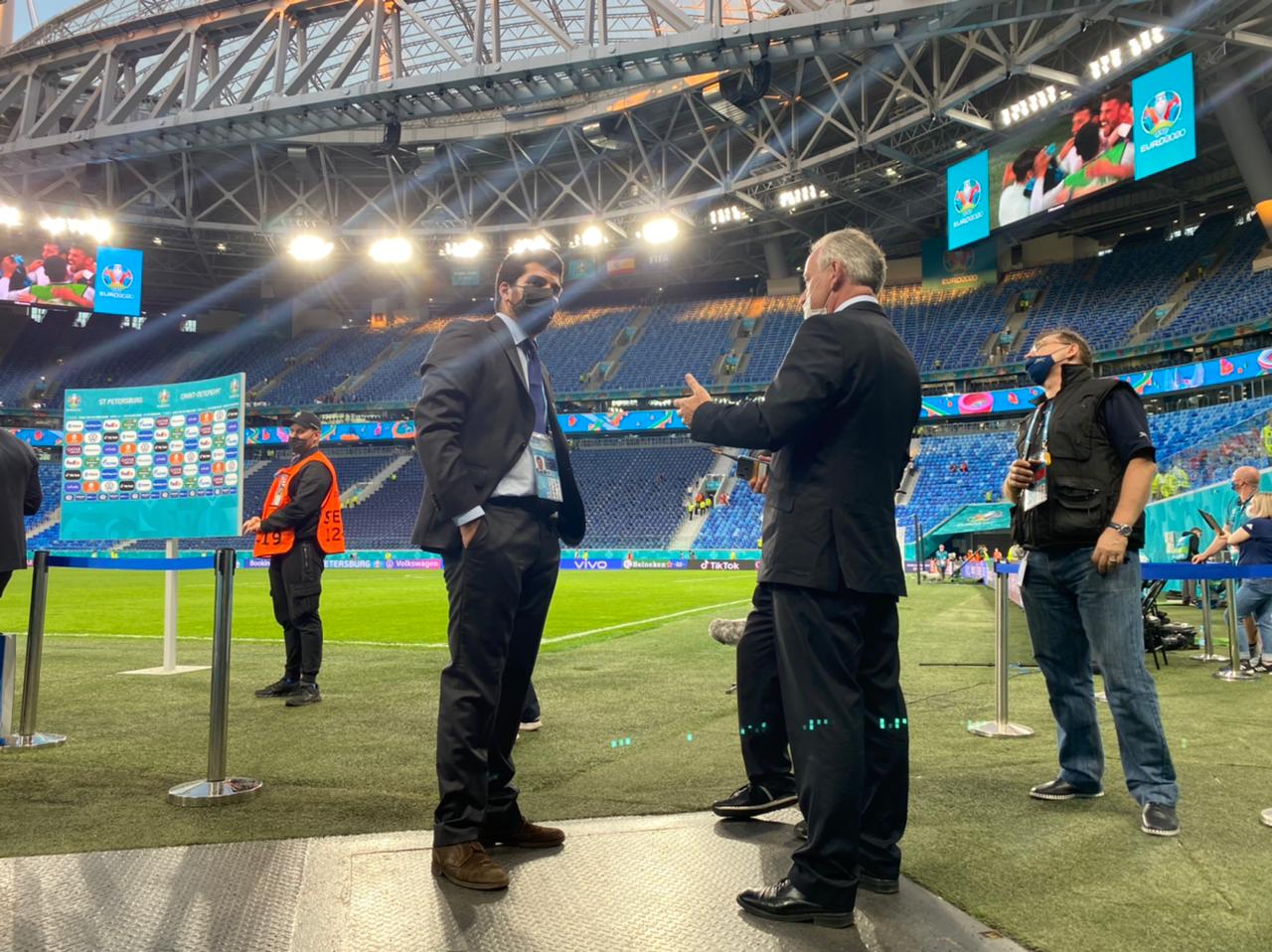
– What is more interesting or difficult from a technical standpoint, the Olympic Games or the World Cup?
I would say the Olympic Games, as they are multi-sport, it is a huge specialist camera challenge, the World Cup is quite easy in my mind, 22 men run up and down a field, at last count we had 44 camerasfor coverage of oneEuros match, now in the Olympics you have golf, surfing, skateboarding etc… all of this makes it much harder,even if you are not interested in the different sports, it is fascinating to see how the technical teams and producers put everything together, the Olympics wins hands-down.
– What are your plans for the next five years?
I will continue what I am doing now – being hired by companies to help plan and manage their events, the next major event will hopefully be the women’s World Cup in Australia and New Zealand, with the Covid lockdowns here in Australia it’s hard to plan anything outside the country but a minor role in Qatar would be nice or to return to work for UEFA in St Petersburg, I am very much a fatalist so will see what happens next.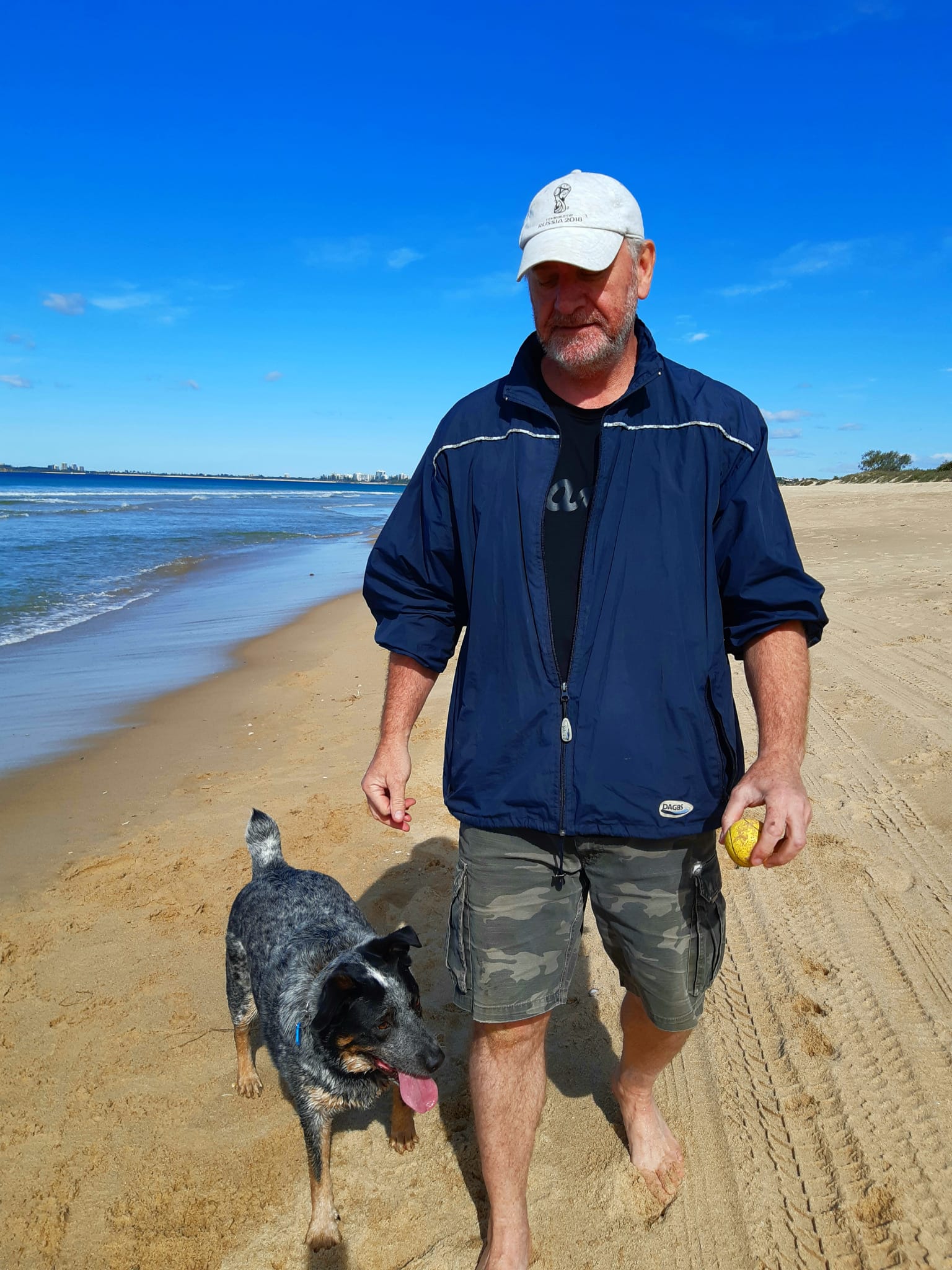
– What do you like to do outside of work?
My wife and I have some land, we live in the countryside and have a couple of horses to look after, working in broadcast managementthere are always people with you, non-stop for months, so when I come home, I like to relax and do renovations of our old house or go to the beach with my dog Matilda, my friends call me Shrek because I live in a swamp and never see anyone.
– Do you have children?
I have one son who Liam is 24 now, he lives in Brisbane, about 100 km away from us, a in IT.
